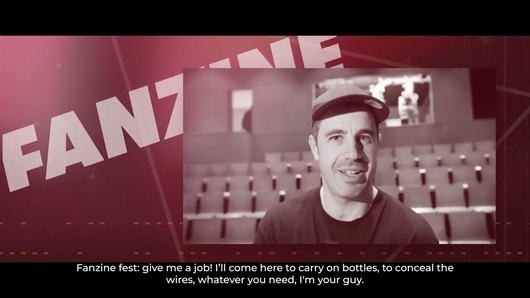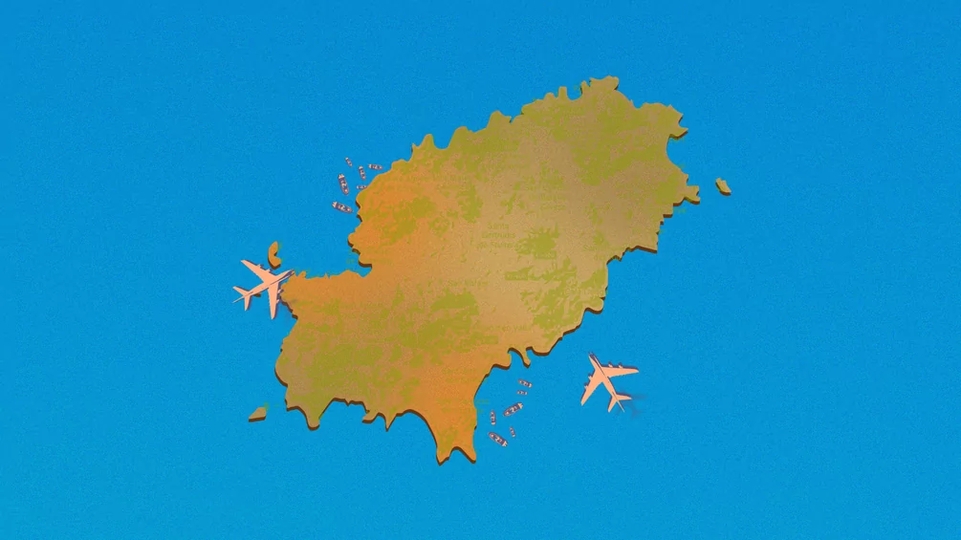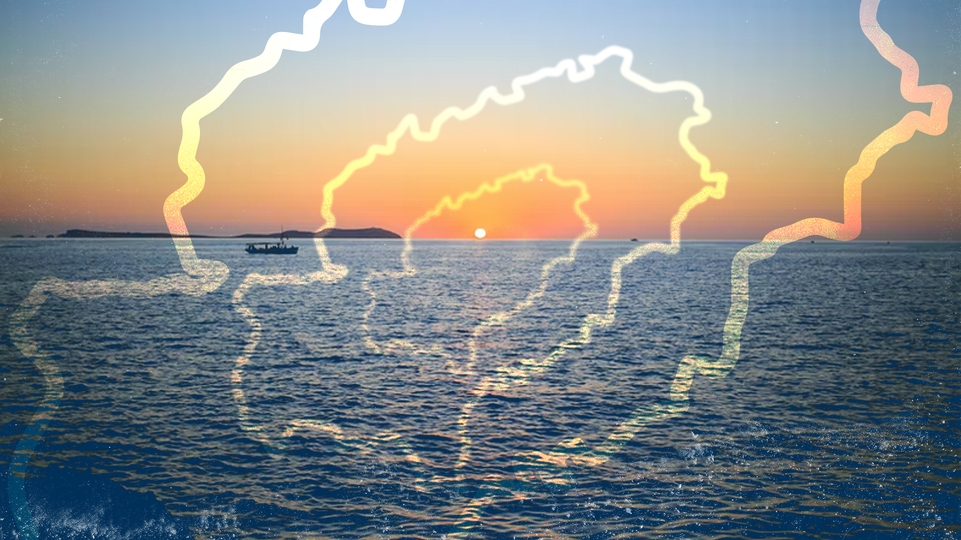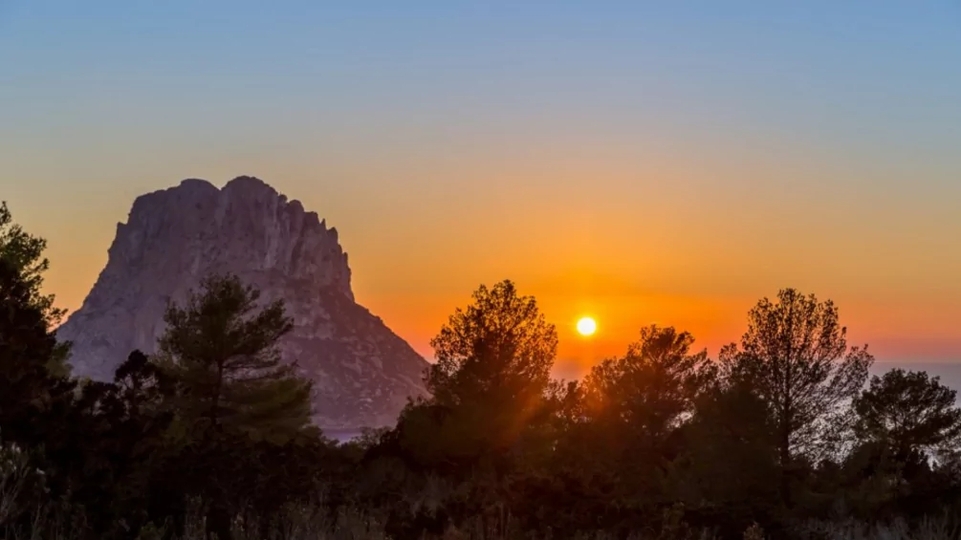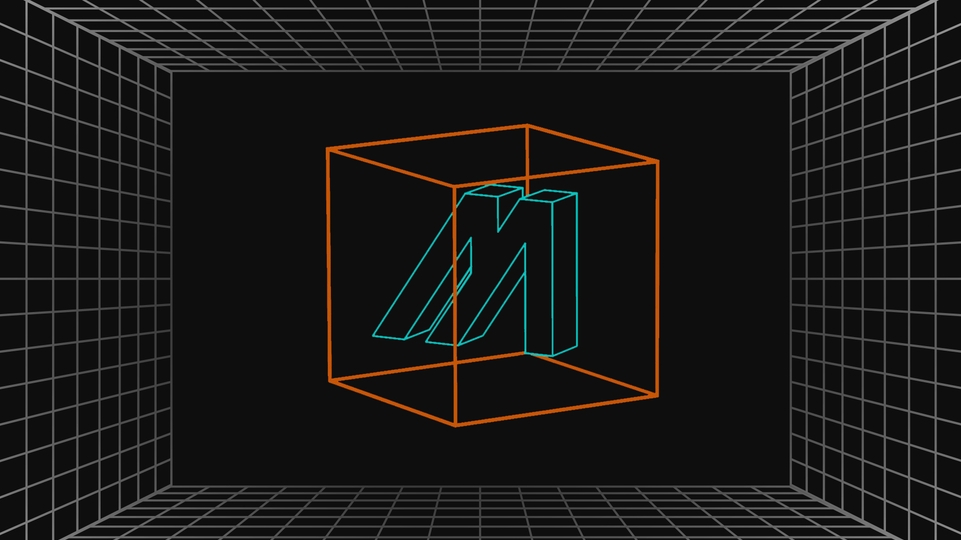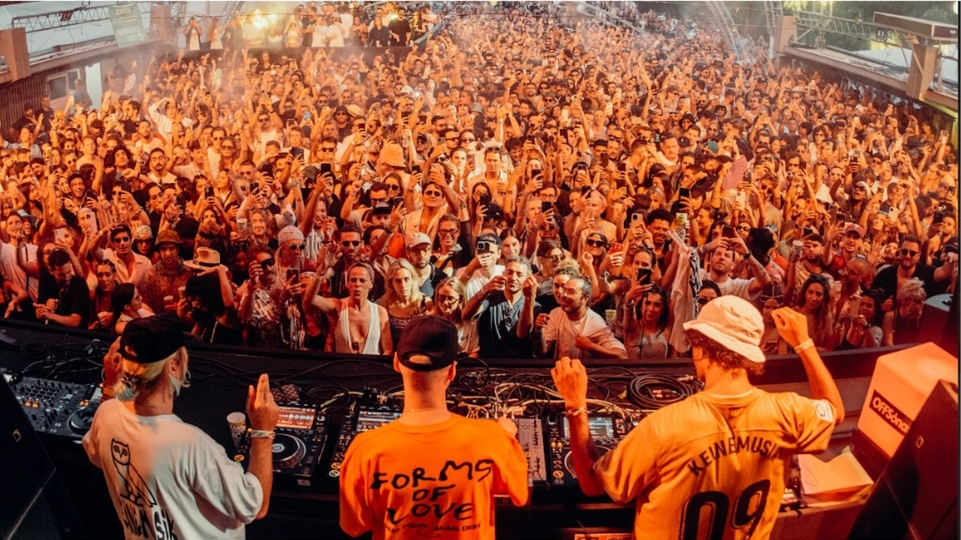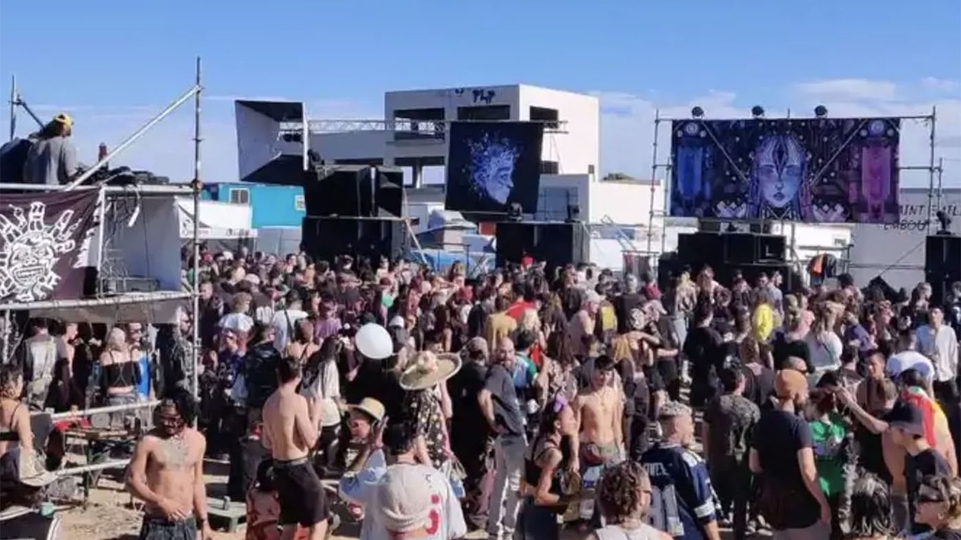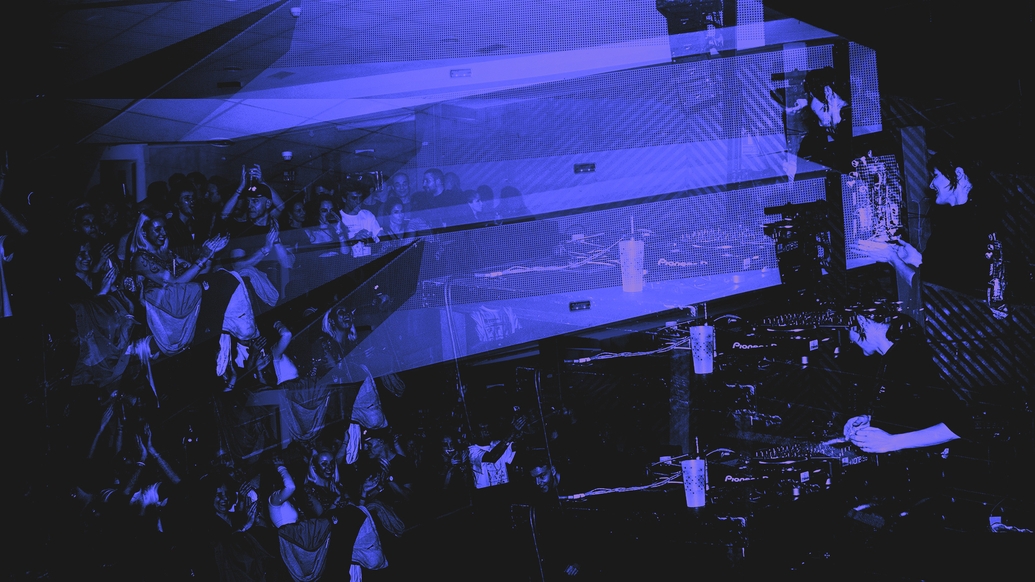
Machine yearning: diving deep in Spain's electro underground
Spain’s electro and IDM underground is popping off like never before, thanks to a percolating network of new labels, DJs, producers, clubs and festivals. Ben Murphy talks to some of the people behind this growing scene, and finds out why it’s happening now
Far from the superclubs of Ibiza, there’s an underground electronic music movement growing in Spain. In Madrid and Barcelona, and outposts in Valencia, Seville and A Coruña, an emerging faction of DJs, producers, record shops, venues and festivals is dancing to a different beat. Subterranean electro and astral braindance are the driving genres, with booming 808 drum machines, acid sequences, spectral synths and breakbeats coalescing in a vibrant and rapidly expanding scene.
Labels like Lapsus, Distrito 91, Masa Series, Adepta Editions, Black Quasar, Artificial Intelligence, Nebulae, Sin Hilo, Hypnotica Colectiva, Noise To Meet You, Semantica, Diffuse Reality and Withhold are pushing deeper, more unconventional forms of dance music in a country where house and techno have long reigned. One of the most important of these is Madrid’s Analogical Force; run by Sergio JM, since 2015, the label has put out an immaculate run of releases from IDM and electro champions such as D’Arcangelo, James Shinra, U-Ziq and Voiron. Delve into the catalogue and you’ll hear everything from the glitchy acidic rhythms of Istanbul’s Fluctuosa to the melodic, melancholic synths and addictive hardware bass of Brooklyn’s Patricia. Though the label primarily releases international names, it’s also provided a springboard for rising Spanish artists, such as the excellent Promising/Youngster.
Analogical Force started in 2006 as a monthly club night in Sergio’s hometown of Madrid. At the time, there were few other events of its kind, and he had to adopt a DIY approach to make something happen. “They were underground parties in clubs with reduced capacity of 200-300 people,” he remembers. “We had few means, but a lot of passion and enthusiasm to spread non-commercial electronic music, from ambient or experimental stuff to hardcore or acid and electro. It was a time in Madrid when if you wanted to schedule artists who were out of focus or far from the mainstream, you had to do it yourself. Those were very fun years, with a lot of learning. I made contact with many artists, people like Rob Hall, Bola, Monolake, Mr76ix, D'Arcangelo, Helena Hauff, Kettel, B12, Grant Wilson, Mike Paradinas, and many more... there were glorious nights. That was the germ of the label.”
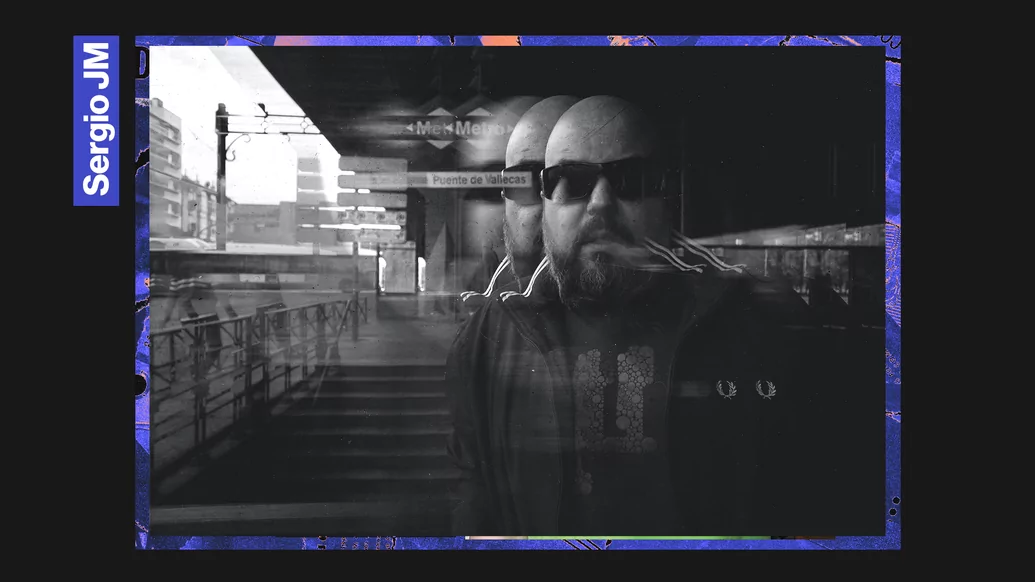
Moving between dancefloor material and more introspective electronica, the label has become a meeting point for left-field producers, with a similarly unblemished track record to classic stables like Rephlex and Planet Mu. “I don’t restrict the label to any specific genre, but let it grow and evolve, creating its own ecosystem,” Sergio says. “I like that there are different perspectives and approaches, even within the same release, and that the label’s music can be consumed inside and outside the club. So I try to bet on timeless sounds, I don’t care if it’s a very established artist or a newcomer, the balance in that sense is important too.”
Where Analogical Force has ventured, many others have followed, creating their own unmissable runs of releases. Elsewhere in Madrid, Distrito 91 is run by fast-ascending electro DJ Fabio Vinuesa, and focuses on a more overtly club-driven sound. On the label’s latest V/A, ‘Our Own Algorithm Vol. 2’, metallic snares and thumping drum machine kicks collide with snaking, Drexciyan synth basslines, with Vinuesa’s own ‘Numbers’ a particularly potent cut you can imagine in the sets of DJs like Stingray 313 or Alienata.
Also in the capital, Noise To Meet You has quickly risen up the ranks with its gorgeously melodic releases and striking cover illustrations by Galician visual artist Plástica. On its latest V/A, ‘Reticular Activating System’, there’s everything from the limpid chords and crisp percussion of Ivna J’s ‘Laax’ to the acidic funk and hulking bass tones of Sim80’s massive ‘Medbay’.
Barcelona’s Nebulae label, founded by Santos Murillo, started in 2018 and has become a home for dreamy, space-age electro from artists like Malta’s Sound Synthesis, Manchester’s Armec, and Spanish artists such as Barcelona act MCMX and the upcoming Adhesive. With its celestial artwork, depicting intergalactic nebulas, and wide-ranging compilation EPs, it’s become another important star in Spain’s electro firmament. “Perhaps the emergence and international success of labels like Analogical Force, which have embraced genres that are niche in Spain, has encouraged some of us to believe that we are capable of saying something interesting and accepted beyond our borders,” Murillo says. “Having close cases of success can be a tremendous motivational factor to dare to take certain steps, such as investing in the creation of a record label.”
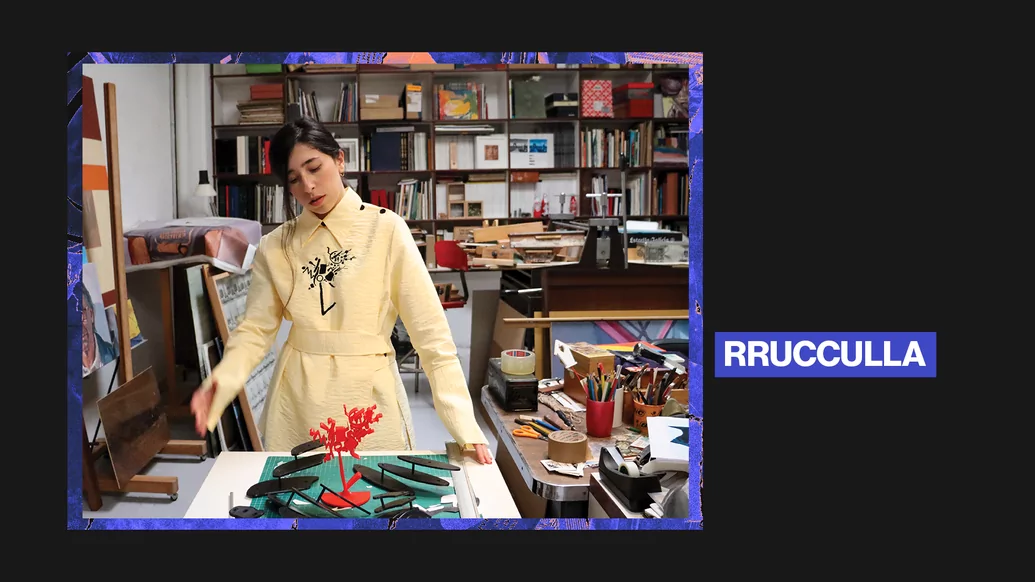
One of the greatest success stories in this growing scene is Lapsus. Started in 2010, the Barcelona label is a treasure trove of experimental electronica and the weirder end of dance music. Legendary names, such as modular synth pioneer Suzanne Ciani, appear in the catalogue alongside adventurous modern producers like Wordcolour, Gacha Bakradze, Surgeons Girl and Lord Of The Isles. One of the latest albums on the label, ‘Zeru Freq’, is by Bilbao’s own RRUCCULLA, a drummer and electronic producer whose synth melodies move from wistful and pensive to joyous and unconfined. ‘Pure Air Contortion’ mixes cascading breakbeats with glitchy frequencies and subtle piano, while ‘Wind Pose’ has breezy electronic zephyrs that buffet a swung beat somewhere between electro and UKG. RRUCCULLA is the latest astute signing from an eclectic label that never puts a foot wrong.
Founded by Wooky (Albert Salinas), the idea for Lapsus sprang from a series of impromptu raves he threw in 2004, in Vallvidrera, north-west Barcelona. Underground club events in Sant Cugat, Sabadell and Barcelona followed, “made up of DJs from my immediate surroundings and some national guests”, Salinas says. When he was working at now-shut music shop cd.drome in the city, Salinas decided to launch his own imprint. Lapsus was born, and has blossomed into not just a label, but also an event promotion, running club nights and small festivals. “It was during that period when Lapsus stopped being a hobby and became a life opportunity,” he adds.
The label is prolific, releasing everything from reissues of electro classics by Vector Lovers and deep house by Swayzak to new gems by Earth Trax and Spanish artists Pépe and Pina, with a particular focus on albums. Its latest project is a remaster of the original score to classic Playstation game Wipeout by CoLD SToRAGE, with new remixes by the likes of Kode9, Datassette, U-Ziq and Surgeons Girl. Though the label’s output is sonically varied, a love of non-typical electronics is a connective tissue. “As the years go by, and seeing now the entire catalogue that Lapsus has shared to date, the truth is that I don’t think it can be defined with any labels,” Salinas says. “Basically it’s the music that I like, obviously electronics, whether it was or not a sound that was on its peak level at that time. It’s music that appeals to the feelings, that requires attention, that has a discourse.”
Though the nuclei of this electronic underground are undoubtedly Madrid and Barcelona, there are passionate advocates of the sound elsewhere in Spain. In the medium sized city of Valencia, Hypnotica Colectiva was founded in 2005 as a club event series, but has over the years grown to encompass a DJ and production crew and record label. HC Records has been in operation since 2016, and already boasts a huge catalogue of releases, darting from the acidic electro of crew member The Lost Boys’ ‘Exiles Of Mars’ to Dark Vektor’s synth-pop influenced ‘Universos Infinitos’, via the intergalactic synth melodies of Irish producer Cignol’s ‘Broken Circle’.
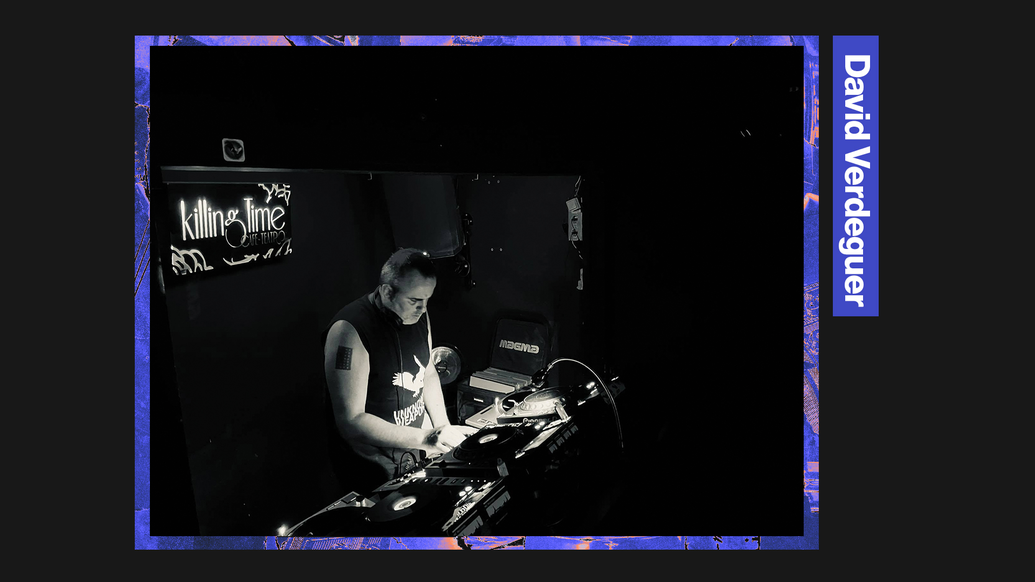
“The first centres of electro and experimental music in Spain emerged in areas such as Asturias, Galicia or Valencia” – David Verdeguer
Recently, the label has also launched Explorations, embodying its more experimental IDM side. David Verdeguer, co-founder of HC, acknowledges that the biggest cities in Spain are the current hubs for electro and braindance, but he says that hasn’t always been the case. “The first centres of electro and experimental music in Spain emerged in areas such as Asturias, Galicia or Valencia,” he says. “There are festivals like LEV in Gijón, in Santiago de Compostela, in A Coruña or our VOLUMENS festival here in Valencia. We had a small Sonar here with the Observatori festival at the turn of the century. Its daytime edition was held in the City of Arts and Sciences [architectural complex], a model of futurism, modern art and technology.” Verdeguer points out that HC’s club night in Valencia, Dance Club Killing Time, has been running for 14 years, while venues in other places, like “the Galaxy Club in Oviedo or Lanna in Gijón”, indicate a percolating scene across the country.
Spain’s vibrant electro scene hasn’t come from nowhere. Pioneers such as Arcanoid, Boris Divider and Eduardo de la Calle have been putting in the groundwork for decades, while Svreca’s Madrid label Semantica has been going since 2006, releasing IDM and electro in addition to underground techno. What’s different is the sheer number of exceptional DJs and producers making noise at home and abroad. One of the best is Barcelona’s Annie Hall (real name Ana Artalejo). Though she’s been releasing music since 2006, lately, she’s been highly prolific, with EPs on CPU, 20:20 Vision and Orson in the last few years. ‘Erfle’, from her recent ‘Plössl’ EP, mixes star-gazing synths with grounded, club-driven electro drums and IDM lead lines, while the incredible ‘Maruxaina’ is a more atmospheric piece that shows her braindance influences.
Annie Hall got into electro through the Madrid night Coppelia 101, catching artists like Anthony Rother and Carl Finlow in the club. “I loved the vibe of the genre and instantly connected with the sound,” she says. Drawing early inspiration from Spanish pioneers like Boris Divider, Rec Overflow, Eedle and Miguel Mendoza, and also artists like Autechre, Miles Davis and Slowdive, Annie Hall has arrived at her own sound, melodic and mystical, but also club-compatible. She hails Spanish electro contemporaries Structweird and Pau Cabruja as producers to watch. “I think the Spanish IDM / braindance movement is more about producers than clubs,” she says. “Maybe you can find some cool events like this at Razzmatazz or MIRA Festival, especially this last one.”
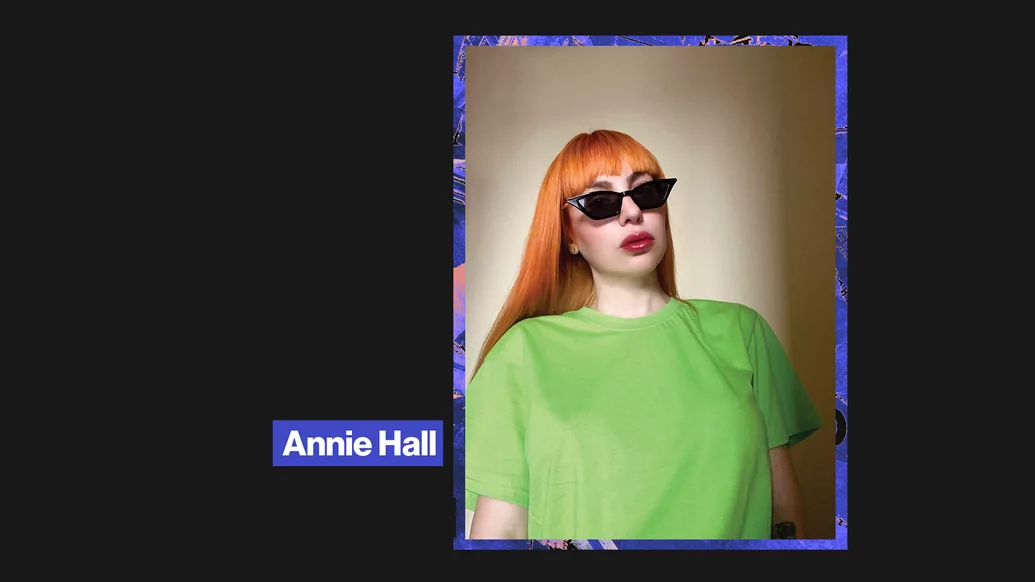
Hailing from Lugo in the north-western Galicia region, Synth Alien (real name Alberto Sanmartín) is another key producer in Spain’s burgeoning movement. His six-track EP for Noise To Meet You, ‘Das Augas ó Alén’, is full of bright melodies and burbling, harmonic machine funk basslines, produced with 100% hardware. The track ‘Neidr’ has shades of ’80s synth-pop matched to crisp drum machine hits, while the speedier ‘Nauia’ will appeal more to the Drexciya heads, with its Detroit electro influences. From A Coruña, DJ/producer Roi — who’s released on labels like Science Cult and Fanzine — has a fine line in peak-time electro cuts, with tunes like ‘Algrote’ composed of creeping bass tones and crunchy snares.
Over in Ibiza, UF0 is one of the few electronic artists on the island diverting from the house and techno orthodoxy. In 2020, he emerged with releases on Gated, Withhold, and an album on Anil Lal’s Altered Sense imprint. Tracks like ‘My Darling’ pulse with heart-on-sleeve synth melodies and electro rhythms, while ‘The Support Of All Those People’, from his recent ‘You Will Shine’ album, is draped in diaphanous Aphex Twin keys, intricate harmonic layers and hard breakbeats: a bewitching blend of musical beauty and rhythmic heft. “I was introduced to electro and IDM by a friend, Oscar Hervas,” UF0 says. “I come from psy-trance originally, and he used to show me IDM and electro records when we went to his studio to produce.”
On the island, he mentions only Yawa Zë and Carlota Marques as artists on a similar wavelength, but praises labels like Analogical Force, Lapsus, Withhold and Sin Hilo for raising the profile of electro in Spain. Barcelona’s Sin Hilo in particular has specialised in foregrounding new artists from the country, putting out excellent albums by the likes of Vanadium, Jailed Jamie, Pina and White Solar Dog. Vanadium’s music, as heard on the new album ‘GWYRDD’, mixes IDM, drum & bass, post-rock and electro into a singular blend.
A regular on Sin Hilo is Promising/Youngster (Diego Cadierno), a producer who used to make house and techno, but who has more recently explored electronica and club-geared material on releases for Analogical Force, Adepta Editions, Nebulae and Noise To Meet You. ‘Whales’ from his ‘AE-03’ EP is all glitched drum machine beats, sweeping pads and emotive machine notes, and ‘Both Of You’ on the ‘Balance’ EP rides metallic bass and heavy beats, before crystalline leads descend.
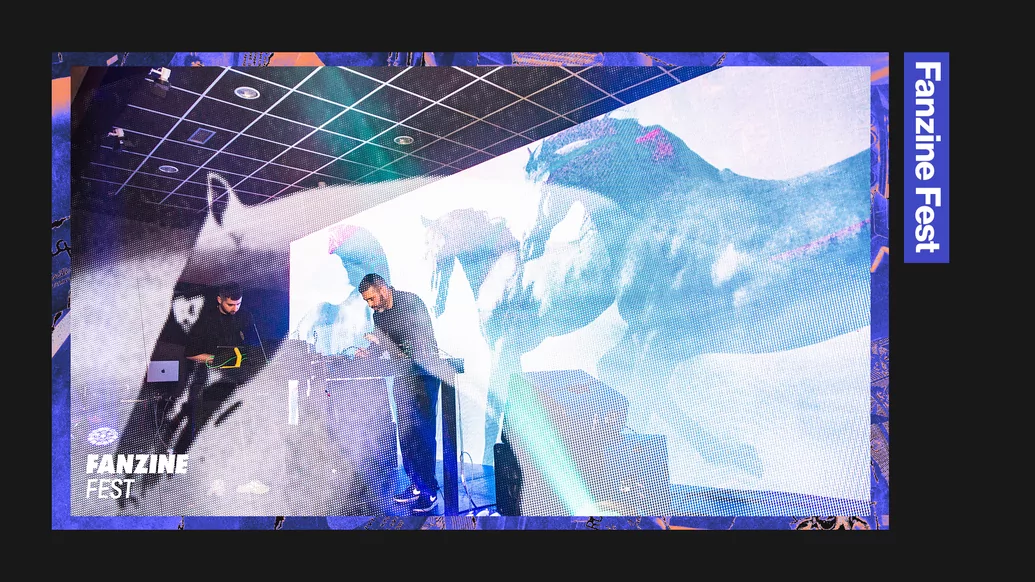
“It’s a festival in which we could make room for the most avant-garde electronic music, bring to our city artists that have hardly been seen here before and, of course, give visibility to the enormous local talent.” – Pablo Cubeiro, organiser at Fanzine
“I have been producing electronic music for more than 20 years, and I always tended to focus on more four-on-the-floor-oriented stuff,” Promising/Youngster says. “However, I liked to listen to IDM, downtempo and that kind of stuff, and occasionally started making that music too, so back in 2015 I decided to create this Promising/Youngster project for this purpose, and it’s mainly what I do now. Initially it was more IDM oriented, but since I was listening to more and more of this new wave electro — I’d say more melodic and IDM-flavoured — my works have this influence, too.”
Neska is a name from the Barcelona underground who’s been making noise recently. Primarily a DJ, she learned her art playing nights like Human Club at Razzmatazz and at the LAUT venue in the Catalan city, and on her dublab radio show. Her recent show for Rotterdam’s Operator station gives you an idea of her wide-ranging sound, moving between corrosive acid and electro beats, techno, and weirder rhythms. “I literally play everything,” she says. “When I started DJing three years ago, one of the things that started shaping my sound was the curiosity to deeply learn different electronic music genres — how they are composed and structured, their dynamics and formulas, how to mix them. When you master the more technical details of a genre, you can then play with it with total freedom, and also freely mix different genres all together in a way that sounds natural and fluid.”
Though clubs have obviously played a significant part in Spain’s electro scene, with venues like Siroco in Madrid, Apolo and Razzmatazz in Barcelona, and El Cubo in Leon important spots for underground electronic music, it’s perhaps the plethora of festivals dedicated to deeper sounds that have made the bigger impact. Albert Salinas says that “the birth of Sónar festival gave to [Barcelona], and also to the rest of the territories, a certain legitimacy to enter the map of the international electronic scene”, while MIRA festival, taking place each November, invites some of the most credible dance artists to perform, with Nikki Nair, Lanark Artefax and Hudson Mohawke playing next month’s edition.
One of the key events for electro and IDM is Fanzine, a festival that takes place in the Galician port of A Coruña. Started in 2015, it happens each December, and stages events across the city in museums, churches, theatres and gig venues, with a bill that mixes international acts and Spanish artists. “Fanzine Fest was born from the seeds planted in Fanzine Club (2008-2012), because we wanted to take electronic music to spaces where it wasn’t usually performed,” Pablo Cubeiro, one of the event organisers, says. “It’s a festival in which we could make room for the most avant-garde electronic music, bring to our city artists and proposals that have hardly been seen here before and, of course, give visibility to the enormous local talent that makes up the most important part of our line-ups.”
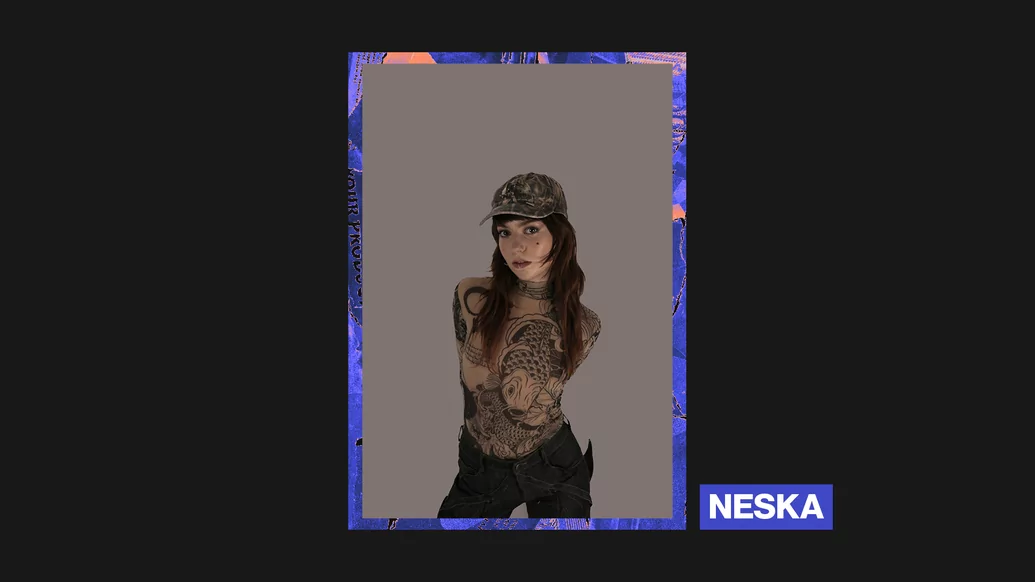
This year, electro hot-shots like Steffi and Acidulant rub shoulders with Fabio Vinuesa and Boris Divider, plus many more exciting names. Fanzine has provided a locus for Spain’s underground scene, helping to stoke the fire with its own highly regarded record label and DJ agency. “I think that in Spain there has always been a lot of talent in the electro, IDM or electronic scene, but it’s true that in the late ’90s and early 2000s, it lived in the shadow of what the big clubs were programming, and there were no spaces in which to develop the scene,” Cubeiro adds. “The appearance of festivals like Sonar, at the beginning, and later LEV or our Fanzine, have served to open up other sounds to the public. Since then, they have been gaining the visibility that the scene deserves, and artists, labels, collectives and new festivals have started to emerge that are committed to other sounds.”
As well as these adventurous festivals, Sergio JM reckons that the efforts of the scene’s pioneers in Spain, plus a new sense of confidence and collectivism, have helped it grow. “There have always been great artists and talented people with good ideas here,” he says. “In the past we observed the German or UK scene with a certain inferiority complex, but that changed years ago. I think that we have all contributed to reversing this situation, especially those who preceded us generationally that taught us it was possible.”
“I think the key for this is that these music styles are not as big as techno or house, so labels, artists and promoters all need to join hands and forces to keep the scene alive,” Promising/Youngster adds. “Also, there are not that many big egos, so it’s easier to collaborate and have new ideas arise.” Neska, meanwhile, attributes the influx of new blood into the scene for invigorating and expanding it. “Only now it seems to be some kind of resurgence of these sounds thanks to young artists digging into it,” she says. “I feel like thanks to the internet and the external global scenes, more people are pushing their ‘left-field’ projects within the Spanish scene (labels, agencies, DJs).”
These artists, labels and festivals are only set to grow in stature. Annie Hall has new music coming on Lunar Disko; Fanzine Fest is gearing up for a banner year; Analogical Force is readying the debut album of French synth master Fasme. “Hopefully brighter days are coming for the Spanish scene,” Neska says, “as all these alternative projects keep being pushed and supported.”

